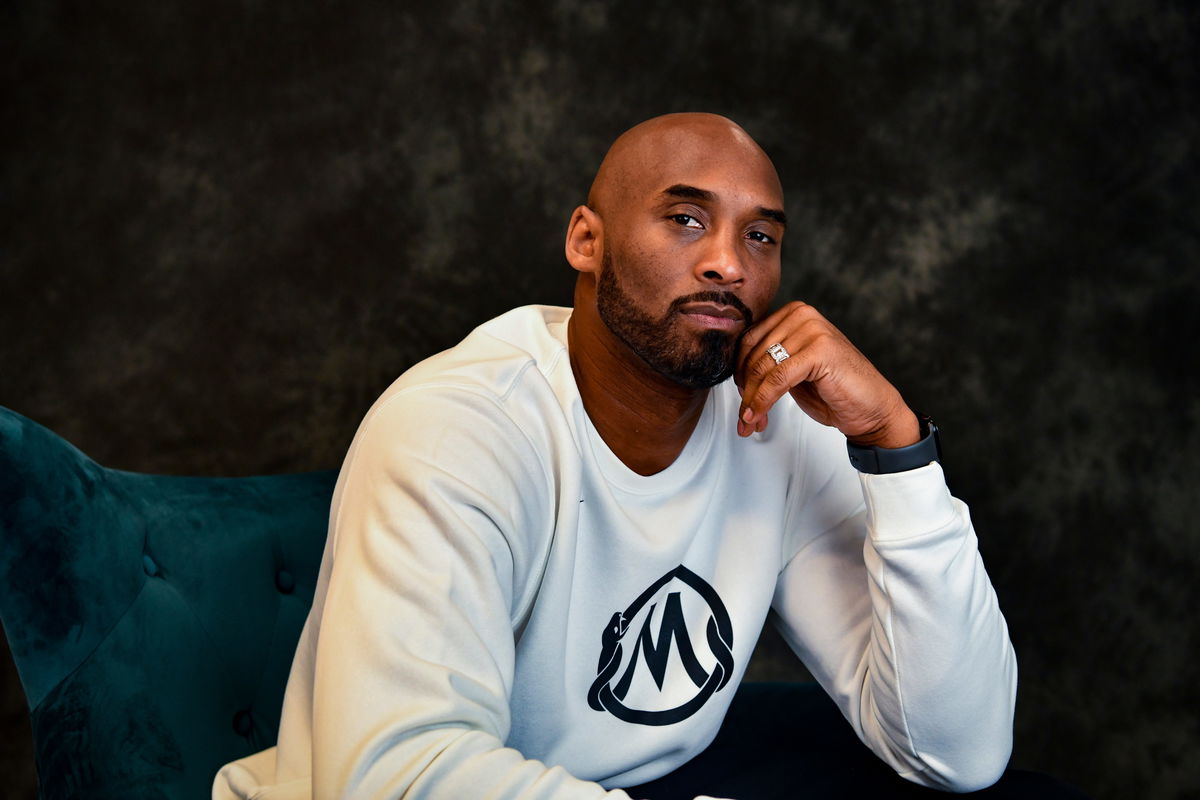
Imago
Kobe Bryant poses for a portrait inside of his office in Costa Mesa, California, on Jan. 17, 2020. Bryant, one of the greatest NBA players in history, is building an impressive resume in his post-basketball career, including winning an Academy Award.

Imago
Kobe Bryant poses for a portrait inside of his office in Costa Mesa, California, on Jan. 17, 2020. Bryant, one of the greatest NBA players in history, is building an impressive resume in his post-basketball career, including winning an Academy Award.
Most people recall meeting Kobe Bryant with pride—few walk away wishing they’d done more. Most fans chase autograph frames; he chased conversation. And he walked away with neither. On a sunlit California set, two worlds collided: polished Panini cards and raw street‑ball flair—yet the dialogue never ignited. Now, that missed opportunity pulses through his every dribble, a reminder that sometimes the biggest plays happen off the court.
Watch What’s Trending Now!
That man was Grayson Boucher. Hailing from Keizer, Oregon, where height typically dictated success in high school gyms, changed the narrative. Fusing fundamental technique with showmanship, he exploded onto the AND1 Mixtape Tour stage in 2003, later amassing over 8 million YouTube subscribers. With millions of followers, acting credits, and a successful business career, he became the unusual person who could affect both street and mainstream basketball cultures. Because of all his achievements and prominence, he had the opportunity to meet NBA legends. However, there was one meeting that stood out more than others, and it was with the legend Kobe Bryant.
ADVERTISEMENT
On a 2025 episode of Byron Scott’s Fast Break podcast, Boucher revisited his overlooked 2009 Panini card shoot encounter with Kobe. “I was hyped,” Boucher recalled of learning Kobe would drop in.. He admitted he tried so hard to play it cool that he froze up. “I was like trying to be too cool… we had some stupid [chat], talking about the Blazers,” he lamented, not using the chance to really talk to Kobe about basketball, art, or their shared love of flair and technique on the court.
A fan request is a nice decoy sometimes 😎🤟🏼 pic.twitter.com/0xsGvd1V67
— The Professor (@theprofessor) April 5, 2025
ADVERTISEMENT
The irony, he explained, is how much more he appreciates Kobe now. “I wasn’t a fan back then—I was a Jordan guy,” he said. “But over time, you had to respect it… then we met for a second and it developed a whole new respect.” He later realized how much Kobe lived the streetball ethos, too. That viral 2001 Philippines clip, where Kobe dazzles mall crowds with dribbles, proved his streetball cred. “I would’ve shown him a move or asked him what he thought of this or that,” Boucher stated, voicing displeasure not in Kobe but in himself for not being there at his full senses for a once-in-a-lifetime interaction.
His regret wasn’t disrespect—it was lost potential. That one brief moment with Kobe could have been so much more: a link between two artists who lived and breathed the game in their own unique way. That wasted chance still hurts for someone who spent his life creating basketball beyond the hardwood.
ADVERTISEMENT
The Professor reveals Kobe Bryant’s influence still echoes through streetball and beyond
Despite once dismissing Kobe Bryant as “just another Jordan imitator,” Grayson “The Professor” Boucher now honors the late Lakers legend on every court by lacing up exclusively in Kobe’s signature shoes. It’s a shift, he says reflects the respect he regrets not showing earlier. “I only hoop in the Kobes now.” That shift says a lot about Bryant’s lasting legacy: how it still affects people on the deepest levels despite a minor interaction.
ADVERTISEMENT
Boucher, estimated to have a net worth of around $2 million, saw the event as a reminder that success does not necessarily translate into happiness. His rise in streetball and global web presence have earned him recognition, but not immunity to regret. “When you’re young, you don’t appreciate the moments,” he said. Now, that vision fuels his mission: teaching not just handling, but mental readiness.
Kobe’s influence is undeniably great, as every time someone mentions his name, it is at the top of the headlines. Fans love hearing about the best of Kobe Bryant because his persona and mindset are something everybody aspires to be. Boucher’s story now serves as a poignant reminder: even icons can falter when they let moments slip by.
ADVERTISEMENT
ADVERTISEMENT
ADVERTISEMENT
ADVERTISEMENT